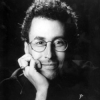Tony Kushner

Tony Kushner
Anthony Robert "Tony" Kushneris an American playwright and screenwriter. He received the Pulitzer Prize for Drama in 1993 for his play Angels in America: A Gay Fantasia on National Themes. He co-authored with Eric Roth the screenplay for the 2005 film Munich, and he wrote the screenplay for the 2012 film Lincoln, both critically acclaimed movies, for which received Academy Award nominations for Best Adapted Screenplay. For his work, he received a National Medal of Arts from President Barack Obama...
NationalityAmerican
ProfessionScreenwriter
Date of Birth16 July 1956
CityNew York City, NY
CountryUnited States of America
One of the things I love about my job as a playwright or as a screenwriter is that I get to do a lot of research and a lot of thinking and taking a lot of notes before I turn it in.
Imagination can't create anything new, can it? It only recycles bits and pieces from the world and reassembles them into visions... So when we thing we've escaped the unbearable ordinariness and, well, untruthfulness of our lives, it's really only the same old ordinariness and falseness rearranged into the appearance of novelty and truth. Nothing unknown is knowable. Don't you think it's depressing?
The general consensus among historians, among the ones who can handle the fact that 'Lincoln' is, in fact, historical fiction, is that we demonstrate enormous fidelity to history and that, beyond that, we've actually contributed a line of thinking about Lincoln's presidency that's somewhat original.
I think I'll always be a better playwright than a pundit, but I believe that writers should be public intellectuals and that theater, even more than film, is a place of public debate.
I go into any movie that's historical fiction thinking, 'OK, I'm here to watch a work of art, something delivering a series of opinions, and if it's a good work of art, these opinions become so deeply embedded in complexity and richness that I won't even be bothered by the opinions. I'll make my own mind up.'
But I think what made me go into theater was seeing my mother onstage. The first thing she did was Mrs. Frank in 'The Diary of Anne Frank.' The second thing she did was a play about Freud called 'The Far Country.' She played a paralyzed woman in Vienna who goes to see Freud.
You have to have hope. It's irresponsible to give false hope, which I think a lot of playwrights are guilty of. But I also think it's irresponsible to simply be a nihilist, which quite a lot of playwrights, especially playwrights younger than me, have become guilty of.
The kind of theater that I do is sort of 'narrative realism,' which I think in the broadest sense is legitimate to say is mainstream. I mean, in a certain sense, Suzan-Lori's plays have had mainstream levels of success. But Suzan-Lori is in some ways not a narrative realist.
I don't think you have to earn your income as an artist to be an artist. But if you are an artist, then art is what you do, whether or not you're paid for doing it; it is what you do, not what you are. I regard artist not as a description of temperament but as a category of profession, of vocation.
When I teach writing, I always tell my students you should assume that the audience you're writing for is smarter than you. You can't write if you don't think they're on your side, because then you start to yell at them or preach down to them.
The act of thinking and interpreting is so central to Judaism that it makes more sense that we've become people like Woody Allen - thinkers and talkers and drafters of law.
So I think I'll say the obvious thing: theater is ephemeral. When a production is done, it's gone forever. You can take pictures of it. You can make a film of it. But it's not the production. It's not the same thing.
You have a good heart and you think the good thing is to be guilty and kind but it's not always kind to be gentle and soft, there's a genuine violence softness and kindness visit on people. Sometimes self-interested is the most generous thing you can be.
If you know that life is basically going to be horrendously difficult, at best, and all but unlivable at worst, or possibly even unlivable, do you go on? And the choice to go on is the only thing that I think can be called hope. Because if hope isn't forced to encounter the worst possibility, then it's a lie.